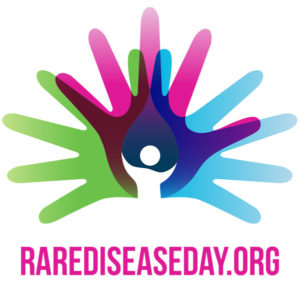 Disease is something that has touched us all in some way. Most of us are familiar with well-known diseases like cancer and diabetes because these often affect our friends, family and even ourselves. Rare Disease Day thankfully reminds us that there are people who suffer from rare diseases that need our acknowledgment and support.
Disease is something that has touched us all in some way. Most of us are familiar with well-known diseases like cancer and diabetes because these often affect our friends, family and even ourselves. Rare Disease Day thankfully reminds us that there are people who suffer from rare diseases that need our acknowledgment and support.
According to the Orphan Drug Act of 1983, a rare disease is classified as affecting less than 200,000 people in the United States. The National Center for Advancing Translational Sciences states that there are a total of 25-30 million Americans living with rare diseases today. Research continues to be a driving force in determining new ways to treat and cure rare diseases.
Mesothelioma is a rare cancer that affects approximately 3,000 people in the United States each year. Mesothelioma develops in the layer of tissue that protects many of the internal organs including the lungs, abdomen and heart. Pleural is the most common form of the disease and it develops in the lining of the lungs and chest wall. Other forms of mesothelioma include:
- Peritoneal: Affects the lining of the stomach and is the second most commonly occurring type
- Pericardial: Affects the sac surrounding the heart and is the third most common type
- Testicular: Is the rarest form and it affects the lining of the testicles.
There is only one thing to blame for mesothelioma—asbestos exposure. Asbestos was a widely used substance beginning in the 1930s for its known durability and thermal properties. Asbestos was used in many household products from insulation, to ironing boards, to cleaners. It was also heavily used in the military for fireproofing and insulation purposes on naval ships and army bases. The abundance of asbestos in the military can be attributed to the fact that 30% of all mesothelioma diagnoses in the United States affect veterans.
Although asbestos use has greatly diminished since it became a known carcinogen, many still are suffering from its effects today. Mesothelioma can take 20-40 years to develop after initial asbestos exposure. Life expectancy after diagnosis varies depending on the type of mesothelioma, but is typically 12-22 months. There is no known cure.
Rare Disease Day was established in 2008 to bring awareness of those living with diseases, like mesothelioma. 1-800-LAW-FIRM is observing this day and you too can help bring awareness and recognize those living with rare diseases.
If you would like to learn more about how you can help, visit rarediseaseday.org for more information.
